September 15, 2008
Openness is creative, but does it earn money?
Gene Expression: New Yorkers do need to see their analysts points out an interesting paper: A Theory of the Emergence, Persistence, and Expression of Geographic Variation in Psychological Characteristics that tries to analyse why people differ psychologically in different parts of the US. For example, people might move to places where they fit in, or the environment may create certain personalities (and the environment may also be affected by personality as a feedback loop). Lots of fun stuff to play with.
However, while the paper seemed to support Richard Florida's ideas about the bohemian advantage I wondered why they did not analyse the correlation with state GDP per capita. So I did a quick check myself.
I used log(GDP per capita) instead of raw GDP, since the multiplicative nature of GDP tends to skew things otherwise. I also left out Washington DC, since it is a clear outlier and tends to distort things.
Update: As noted by Nathaniel in the comments on Gene Expression I used state rank instead of z-scores, which more or less invalidates my original version (at the very least, the correlations change sign). Here is the new results with z-scores (old ones below the fold).
Correlation with log GDP: extroversion -0.15, agreeableness -0.32, conscientiousness -0.33, neuroticism -0.16 and openness 0.20.
I have plotted the different factors vs GDP below (click for a larger version), with a bundle of regression lines added (each corresponds to the data minus one state, thus showing a bit how stable the estimates are).
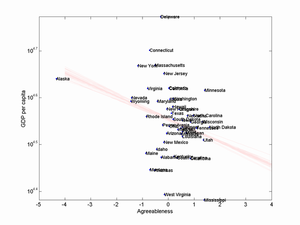
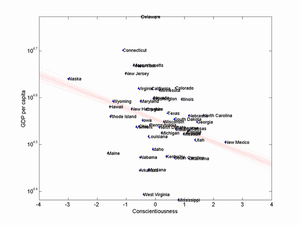
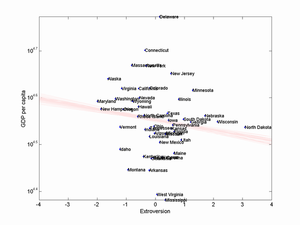
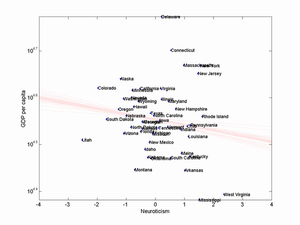
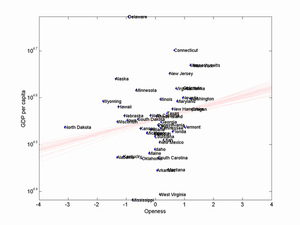
So the conclusion seems to be, yes, openness does improve GDP mildly. But agreeableness and conscientiousness are bad for it. Almost as strange.
Old, wrong results (do not use except as a warning to others!):
Extroversion correlated weakly positive (0.16), agreeableness moderately (0.31), conscientiousness moderately (0.34), neuroticism weakly (0.13) and openness negatively (-0.26). That seems odd.
I have plotted the different factors vs GDP below (click for a larger version), with a bundle of regression lines added (each corresponds to the data minus one state, thus showing a bit how stable the estimates are).
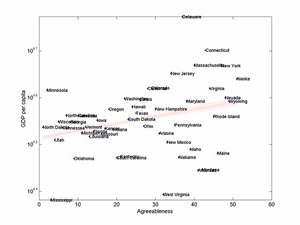
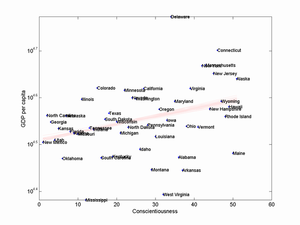
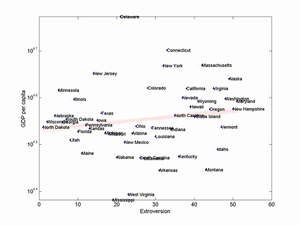
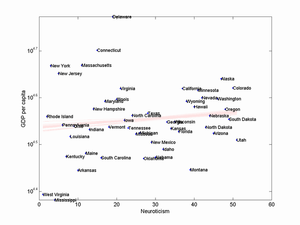
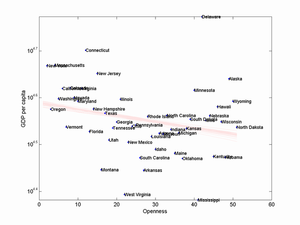
Maybe one reason for this result is that I'm not controlling for everything; in the paper they control for median income, percentage African Americans, residents with college degree and concentration in large cities. At least the first would wipe out the first-order effect. But it still seems somewhat odd that factors that correlate with patent production per capita seem anticorrelated with GDP.
On the other hand, maybe we should not be too surprised that average personality is not a strong predictor of GDP. It predicts various aspects of society, but it is these (together with other factors) that affect GDP. The factors themselves have no unitary influence. For example, high openness is probably good for creative work, but in the general population might promote credulity and criminality (0.42 correlation in the study, when controlling for demographic) that lower GDP.
Posted by Anders3 at September 15, 2008 03:08 PM